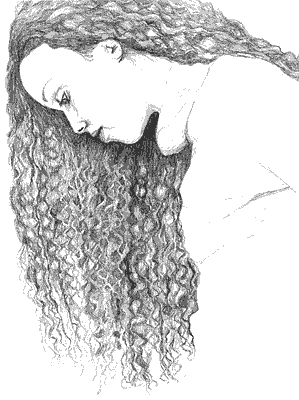All Nonfiction
- Bullying
- Books
- Academic
- Author Interviews
- Celebrity interviews
- College Articles
- College Essays
- Educator of the Year
- Heroes
- Interviews
- Memoir
- Personal Experience
- Sports
- Travel & Culture
All Opinions
- Bullying
- Current Events / Politics
- Discrimination
- Drugs / Alcohol / Smoking
- Entertainment / Celebrities
- Environment
- Love / Relationships
- Movies / Music / TV
- Pop Culture / Trends
- School / College
- Social Issues / Civics
- Spirituality / Religion
- Sports / Hobbies
All Hot Topics
- Bullying
- Community Service
- Environment
- Health
- Letters to the Editor
- Pride & Prejudice
- What Matters
- Back
Summer Guide
- Program Links
- Program Reviews
- Back
College Guide
- College Links
- College Reviews
- College Essays
- College Articles
- Back
Thick, Curly, and Big MAG
Thick, curly, and big. Some see it as a political statement, others a side effect of being African American. What do I think? I accept my hair as a natural aspect of who I am, but this was not always the case.
For most of my life my mother used relaxers – tubs of caustic chemicals that would strip my hair of its natural proteins – to temporarily straighten my hair. I remember all the times I cried from the pain of getting my hair relaxed every two months. My mother would assure me that the pain was worth the beauty, and I gave in to her, because my hair would look like everyone else’s – “everyone” being my white classmates. The relaxer made my hair long, straight, and controlled. It was “presentable,” “fit to be seen.” My hair would blow in the wind and could be brushed back into a ponytail like my white classmates’. And so I blended in.
I grew up believing that wearing my hair straight was the socially acceptable thing to do. Whenever I saw a successful black woman in the media, she had straight hair. I wholeheartedly believed that if I wanted to be like them, be accepted, I would have to look like them and succumb to society’s standards.
As high school approached, though, I decided to try something new. I shaved off all of my hair and planned to let it grow back naturally. Unfortunately, my mother did not agree with this decision. She was afraid that I would now be judged not only for my skin color, but by my hair. This belief has caused a schism in the African American community. There are women who relax their hair and those who choose not to. I have had people praise me for my brave transition, but others shame me, saying that I look “unprofessional, uneducated, and very African.” Well, I am African – Nigerian, in fact – which makes “very African” a very ignorant insult.
The inequality that African American girls with natural hair face is appalling. There are girls who have been expelled from their schools for wearing their hair naturally. There are well-educated women who are denied jobs because they were born with naturally curly hair and refuse to fit social norms. A female’s education and career can be put in jeopardy if her hair doesn’t fit Eurocentric standards. This is clearly racism.
The only way to eradicate inequality is to change what it means to be “normal” and “professional.” I, and others like me, am in dire need of African American women in positions of leadership and power to wear their hair naturally. Only then will young African American girls feel that it is possible to be who they are naturally and still be successful. If no one will rise up, I will. I will be a successful, natural-haired African American woman.

Similar Articles
JOIN THE DISCUSSION
This article has 0 comments.
